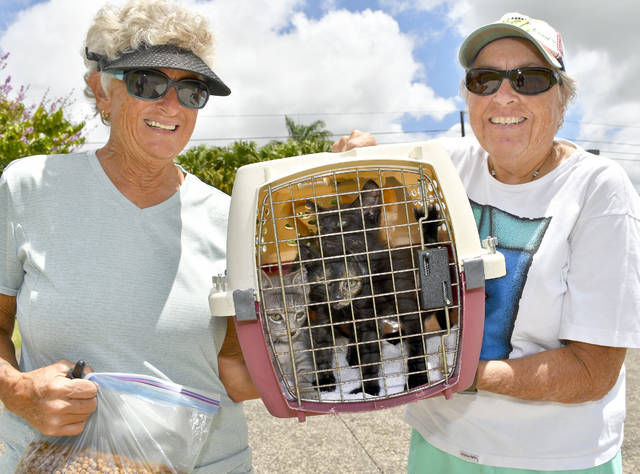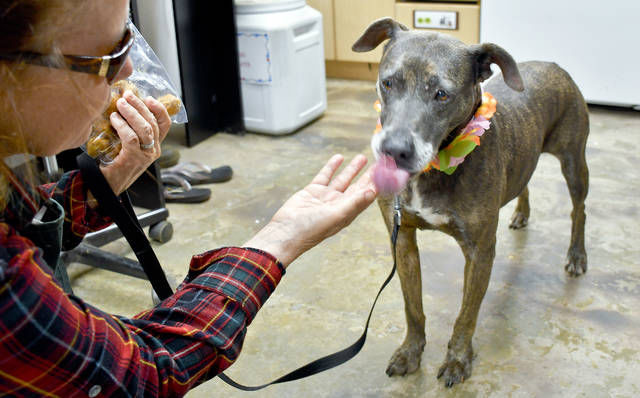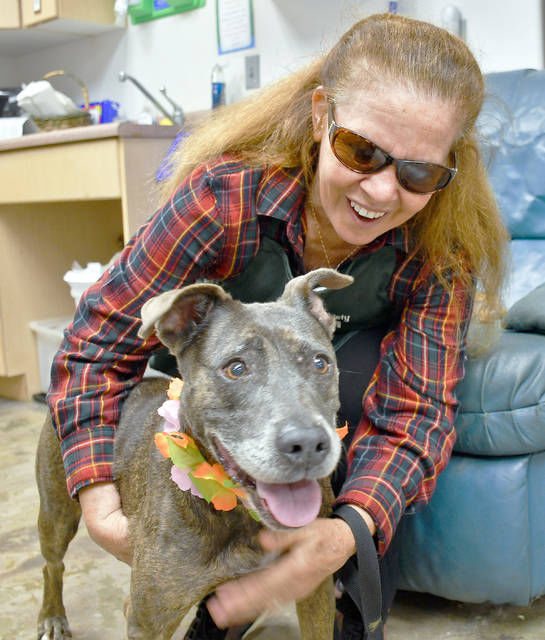PUHI — Kauai Humane Society is currently finalizing its contract with Kauai County, but it’s expected the county will contribute around $795,000 in Fiscal Year 2017-18. That’s the same as it was in FY 2016-17, according to KHS Executive Director
PUHI — Kauai Humane Society is currently finalizing its contract with Kauai County, but it’s expected the county will contribute around $795,000 in Fiscal Year 2017-18.
That’s the same as it was in FY 2016-17, according to KHS Executive Director Scott Pisani.
The money represents one-third of the total KHS operating budget, and $780,000 of it is a payment for services rendered every year. It’s paid in monthly installments, but the amount is estimated at the beginning of every fiscal year.
The remaining $15,000 represents an uptick in reimbursement for cruelty of livestock cases — up from $6,000 in the last fiscal year. That money could help with the Mobile Animal Sterilization Clinics set to land on the island in September.
KHS did not provide an exact number for its overall operating budget.
In addition to the $795,000, Kauai County ends up footing the bill for $60,000 in dog licensing fees and $14,000 in cat licensing fees.
“For licensing, we pay the cost but then the county pays it back,” Pisani said. “So we’re able to keep the licensing fees. The cost is mostly administrative on that.”
The amount KHS requests from the county doesn’t always cover actual costs, Pisani said, and some years the county budget was surpassed and KHS had to fill in the void.
But Pisani said he’s taking his time to discover what he should actually be asking for when it comes to funding from the county.
“For this year, we thought, ‘Let’s keep the budget as it was in the past, but look at it because we’re trying to address community needs that aren’t black-and-white,’” Pisani said.
Changing roles, expectations
In the past, the county contribution to the KHS budget has been for traditional animal control, which means the money isn’t earmarked for a specific thing — it’s just a lump sum.
That means it doesn’t go to foster and adoption programs, or toward caretaking of owner-surrendered animals.
In fact, the philosophy is that county funds only go toward cruelty investigations and the capture and holding of stray animals, Pisani said.
“It’s not a reimbursable contract. It’s payment for a range of services and it’s hard to identify with the overlap, it’s hard to define what is county activity and what is us, as KHS nonprofit,” Pisani said.
Creating an allocation methodology is something that KHS is currently working on, to better define what county money goes where, and what services are paid for by KHS.
That’s one of the things that came out of the February KHS audit.
“We’ll set an allocation method memo agreed to by both parties each fiscal year, and we’ll incorporate that into the final contract,” Pisani said.
That’ll start in FY 2018-19.
The community’s expectation of KHS’s role in animal welfare on Kauai has changed over the years, Pisani said, and because of that there’s a need to address how Kauai County approaches the subject as well.
Going forward, Pisani said KHS might be asking for more money from the county to help hold strays for longer periods of time and more proactively seek homes for lost animals, as well as new places for the homeless.
“Historically it was a dog-catcher kind of scenario, but the community now expects a more life affirming approach to animal welfare,” he said. “That responsibility has to be shared by the county.”
Donations and fundraising contributes to the other two-thirds of the KHS budget, but it’s not just money the community donates that helps keep the doors open.
“The many volunteers who give thousands of hours of their time each year are vital,” said Diann Hartman, board president for KHS. “Community donations are essential for Kauai Humane Society’s success.”
Partnerships with airlines for the transfer program, as well as local and Mainland shelters and rescue groups who will help find homes for animals, are all imperative too, Hartman said.
KHS is trying to invent new ways to fundraise, like the recent Dog House Beer Fest, which raised more than $35,000.
“Our community is demanding we make improvements,” Pisani said. “We have to look at: how can we make the most positive impact in our community, and how the county can contribute.”




